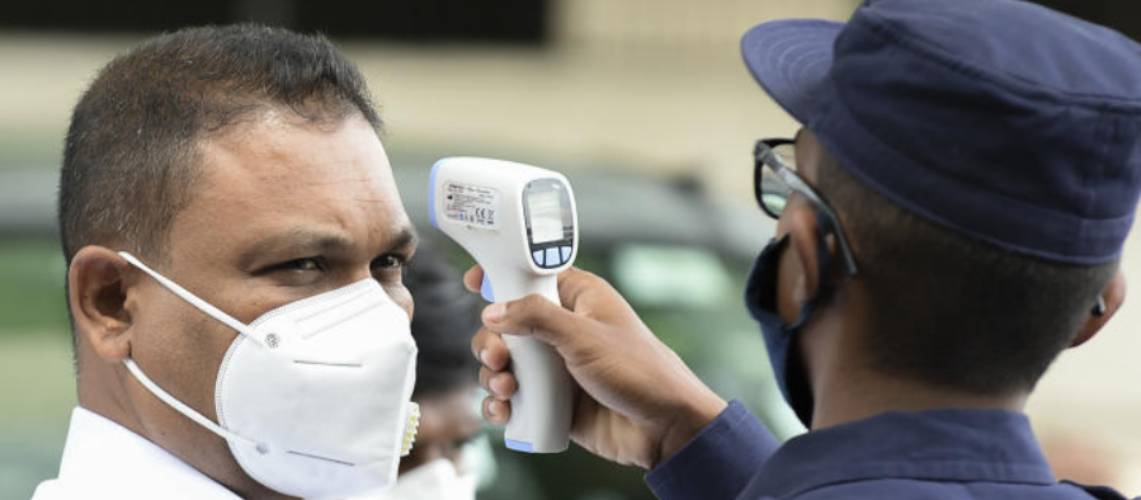×
The Standard e-Paper
Smart Minds Choose Us

A security guard checks the temperature of an electoral official (PHOTO: LAKRUWAN WANNIARACHCHI / AFP)
"From today, when asked, don’t say you are a watchman. Say you're a security officer."